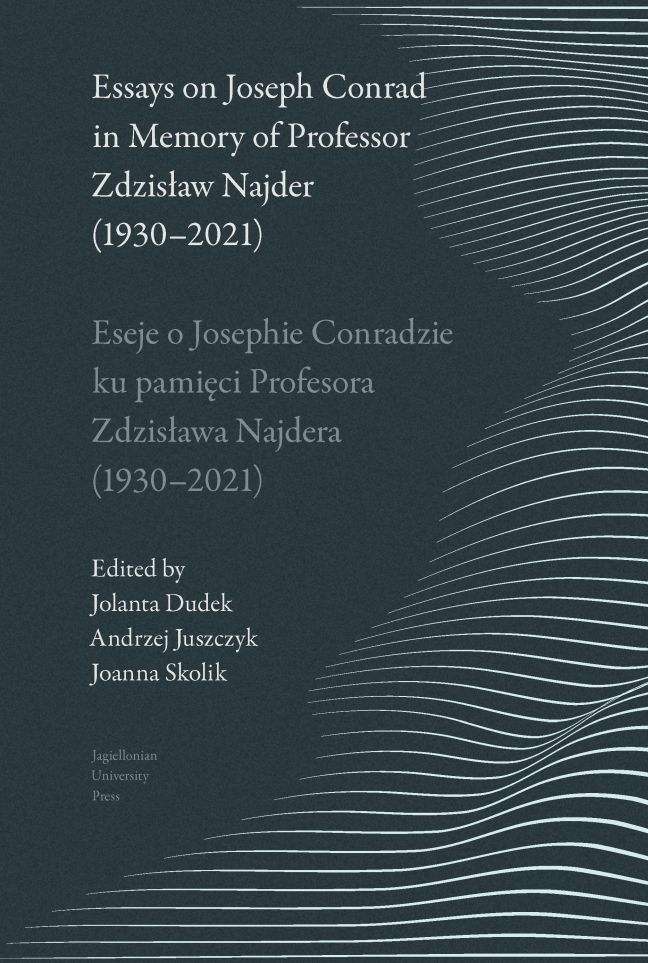Book contents
- Frontmatter
- Contents
- Part I
- Part II
- Bibliografia publikacji i audycji medialnych Zdzisława Najdera o Josephie Conradzie / A Bibliography of Zdzisław Najder's Publications and Media Programmes on Joseph Conrad
- Notes on Contributors / Noty o autorach
- Author Index / Indeks nazwisk
- Miscellaneous Endmatter
Marlow's Maelström: A Few Remarks on the Possible Gothic Inspiration of Joseph Conrad's Fiction: The Case of Lord Jim
Published online by Cambridge University Press: 01 March 2024
- Frontmatter
- Contents
- Part I
- Part II
- Bibliografia publikacji i audycji medialnych Zdzisława Najdera o Josephie Conradzie / A Bibliography of Zdzisław Najder's Publications and Media Programmes on Joseph Conrad
- Notes on Contributors / Noty o autorach
- Author Index / Indeks nazwisk
- Miscellaneous Endmatter
Summary
As early as 1930, Stephen Graham defined Conrad's prose as being something very similar to the lesser known works of Edgar Allan Poe, the iconic American author of Gothic novellas:
You are indeed nearer to the stories of Edgar Allan Poe when reading Joseph Conrad. “A Descent into the Maelström,” slowed down by the ultra-rapid lens, as they say in cinema parlance, would produce something not unlike a Conrad story.
This seemingly awkward remark turns out to be very illuminating when it is read after making a comparison of both writers’ works. Readers who are familiar with Edgar Allan Poe's “A Descent into the Maelström” will almost certainly experience a particular kind of déjà vu on reading Conrad's sea novels. They will immediately notice the most striking similarities, at least as regards the setting of all these works. Even though Poe's novella is set in Norway, whereas Conrad definitely preferred warmer parts of the planet, the environment in which Conrad's plots evolve bears many similarities to the represented world created by Poe. The two writers have much more in common, however. To begin with, the most obvious similarities are with Samuel Taylor Coleridge's “The Rime of the Ancient Mariner,” which was written in 1798, and which was clearly a common source of inspiration for both authors, who not only read and admired the poem, but also proceeded to “rework” it.
Scholars have long established that Poe's “Descent into the Maelström” was inspired by Coleridge's poem. Poe's debt to the British poet has at times even been exaggerated, with some critics in the 1930s (e.g. Floyd Stovall) arguing that “there would have been no Poe without Coleridge.”
Poe's seemingly peculiar fascination with Coleridge is actually something very natural for a man of his day and is closely connected with the Burkean vision of the sublime that was so popular at the time. It was also quite natural for Poe—as a Gothic author—to fall in love with the quality of greatness, which had already been explored by predecessors such as Ann Radcliffe, whose elaborate descriptions of landscapes have led Nathan Drake to name her “the Shakespeare of Romance writers.”
- Type
- Chapter
- Information
- Publisher: Jagiellonian University PressPrint publication year: 2023



